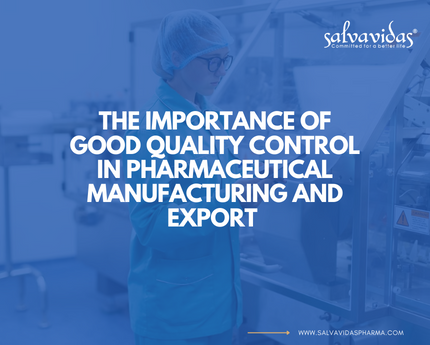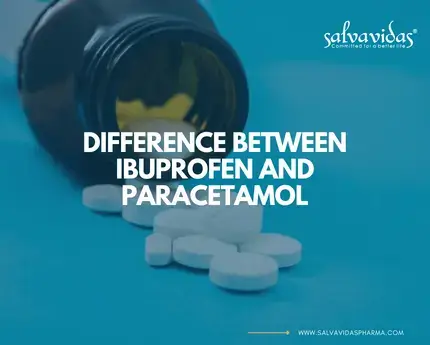
Introduction:
The pharmaceutical industry plays a vital role in the healthcare sector as it produces drugs that save lives and improve health. However, it is crucial to ensure the safety and efficacy of the drugs that are manufactured and exported. One of the most crucial aspects of pharmaceutical manufacturing and export is good quality control. In this article, we will explore the importance of good quality control in pharmaceutical manufacturing and export.
Why is Good Quality Control Important in Pharmaceutical Manufacturing and Export?
Ensures Safety and Efficacy:
The primary objective of good quality control is to ensure the safety and efficacy of the drugs produced. Poor quality control can lead to the production of substandard or contaminated drugs, which can have severe consequences for patients. Quality control measures ensure that the drugs are manufactured according to the approved standards and regulations.
Maintains Reputation:
Good quality control helps to maintain the reputation of the pharmaceutical company. The reputation of a pharmaceutical company is built on the quality of its products. Poor quality control can lead to product recalls damage to the company’s reputation and loss of customer trust. On the other hand, good quality control can help to build a positive reputation and increase customer confidence.
Complies with Regulations:
Pharmaceutical manufacturing and export are highly regulated industries. Good quality control helps companies to comply with the regulations and guidelines set by regulatory bodies such as the Food and Drug Administration (FDA) and the International Conference on Harmonization (ICH). Compliance with these regulations is essential to ensure that the drugs produced are safe and effective.
Reduces Costs:
Good quality control can help to reduce costs associated with manufacturing and export. By identifying defects and errors early in the process, it is possible to prevent costly recalls and legal liabilities. Quality control measures also help to minimize waste and increase efficiency in the production process.
How is Good Quality Control Achieved in Pharmaceutical Manufacturing and Export?
Standard Operating Procedures (SOPs):
Standard operating procedures (SOPs) are written procedures that describe the steps necessary to carry out a particular task. SOPs are critical in pharmaceutical manufacturing and export as they help to ensure consistency in the manufacturing process. SOPs provide detailed instructions on the procedures to be followed, the equipment to be used, and the quality control measures to be implemented.
Quality Assurance (QA):
Quality assurance is the process of ensuring that the drugs produced meet the required standards and regulations. Quality assurance involves a range of activities, including documentation, training, auditing, and inspection. Quality assurance also involves the establishment of a quality management system (QMS) that outlines the company’s quality objectives, policies, and procedures.
Quality Control (QC):
Quality control is the process of ensuring that the drugs produced meet the required specifications. Quality control involves a range of activities, including testing, inspection, and analysis. Quality control measures are implemented at various stages of the manufacturing process to identify defects and errors early and prevent the production of substandard drugs.
FAQs:
Q: What are the consequences of poor quality control in pharmaceutical manufacturing and export?
A: Poor quality control can lead to the production of substandard or contaminated drugs, which can have severe consequences for patients. Poor quality control can also lead to product recalls damage to the company’s reputation and loss of customer trust.
Q: What are some of the quality control measures implemented in pharmaceutical manufacturing and export?
A: Quality control measures include testing, inspection, analysis, standard operating procedures, quality assurance, and the establishment of a quality management system.
Q: How can good quality control help to reduce costs in pharmaceutical manufacturing and export?
A: Good quality control can help to reduce costs by identifying defects and errors early in the process, which can prevent costly recalls and legal liabilities. Quality control measures also help to minimize waste and increase efficiency in the production process.
Conclusion:
Good quality control is critical in pharmaceutical manufacturing and export to ensure the safety and efficacy of the drugs produced. Quality control measures help to maintain the reputation of the company, comply with regulations, and reduce costs. Standard operating procedures, quality assurance, and quality control are essential components of good quality control. Pharmaceutical companies must prioritize good quality control to produce safe and effective drugs and maintain customer trust.




0